16th ISBR Symposium (ISBR 2023)
-
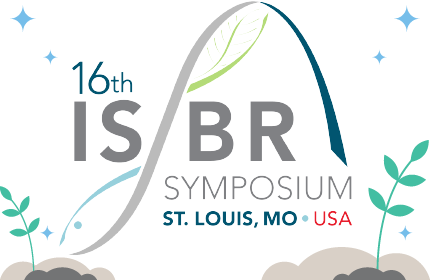
April 30, 2023-May 4, 2023
Union Station Hotel
St. Louis, MO, USA
Organized by the International Society Biosafety for Research (ISBR), the 16th ISBR Symposium (ISBR 2023) came at a time when the contribution of biotechnology has never been more important. Set against a background of rapid advances in new technologies, the program featured 19 plenary sessions, 16 parallel sessions, 76 speakers, and over 100 presentations. With delegates from over 22 countries, the event was an excellent opportunity to reconnect, network, and discuss recent advances in the field. ISBR 2023 took place in St. Louis, Missouri, USA from April 30-May 4, 2023.
The Agriculture & Food Systems Institute led an interactive workshop on AFSI’s Crop Composition Database as a parallel session at ISBR. Dr. Andrew Roberts, Dr. Bhavneet Bajaj, and Mr. Sium Ahmed also delivered a number of presentations during the event.
Sessions and Presentations by AFSI Staff

Andrew Roberts, Ph.D.
Chief Executive Officer Agriculture & Food Systems Institute (AFSI)
Bhavneet Bajaj, Ph.D., PMP
Senior Manager, Scientific Programs Agriculture & Food Systems Institute (AFSI)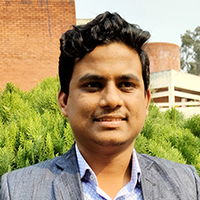
Sium Ahmed
Deputy Manager South Asia Biosafety Program (SABP)Crop Composition as a Component of Food and Feed Safety Assessment - A Hands-On Exercise Using AFSI's Crop Composition Database
Dr. Bhavneet Bajaj (organizer)
Parallel Session 8 | May 1, 2023 | 16:00-17:30
Nutritional composition studies that assess similarities and differences of levels of important nutrients and anti-nutrients are an essential part of the safety assessment of new crop varieties that are used as food and feed. It is important to understand the purpose of the data and its context in the safety assessment. This workshop will provide an opportunity to briefly discuss the rationale for considering crop composition data, how that data is interpreted in the context of the safety assessment, and what the limitations are to compositional studies. The workshop will also introduce participants to a resource for assisting in the interpretation of compositional studies–the AFSI Crop Composition Database (CCDB). Participants will see a demonstration of the database and the new features included in the current version (9.1). Then, participants will be provided with a series of exercises designed to help them understand the search reporting function of the AFSI Crop Composition Database, which they can walk through using their personal laptop during the workshop.
Participants should bring their laptop to the workshop.
Agenda
| Time | Presentation/Activity | Speaker/Facilitator | |
| 16:00 | Welcome and Review of the Agenda | Dr. Bhavneet Bajaj Manager – Scientific Programs, Agriculture & Food Systems Institute, USA |
|
| 16:05 | Talk 1: Variability in Conventionally Bred Plant Varieties in General and the Factors Involved that Affect Composition | Dr. Véronique J. Barthet Research Scientist, Canadian Grain Commission, Canada |
|
| 16:20 | Talk 2: Ranges of Analyte Levels in the CCDB in the Context of Variability Captured, Data Distribution, and Analytical Methodologies | Dr. Mohamed Bedair Compositional Biology Lead, Bayer Crop Science, USA |
|
| 16:35 | Talk 3: An Overview of the Potato Composition Data in the CCDB | Ms. Muffy Koch Senior Regulatory Affairs Manager, JR Simplot Company, USA |
|
| 16:50 | Presentation on the New CCDB: What Is the CCDB, How Does It Work, Applications, and Data Output | Dr. Bhavneet Bajaj Manager – Scientific Programs, Agriculture & Food Systems Institute, USA |
|
| 17:00 | Demonstration of the New CCDB and Exercises | Dr. Bhavneet Bajaj Manager – Scientific Programs, Agriculture & Food Systems Institute, USA |
All Roads Lead to Rome: Understanding the Variety of National Regulatory Mechanisms for Genetically Modified Organisms
Dr. Andrew Roberts (speaker)
Parallel Session 1: Fit-for-Purpose Regulatory Frameworks – A Modernized Approach to GM Crop Regulation | May 1, 2023 | 14:00 - 15:30
The earliest regulatory frameworks for the regulation of recombinant DNA organisms began to take shape in the mid-1980s. As the use of these technologies, particularly in agriculture, expanded globally more and more countries developed national regulatory frameworks using a combination of legislative and regulatory tools at their disposal. These frameworks share a common purpose: to provide a pathway to approval for the use of beneficial technologies while ensuring an appropriate level of safety for people and the environment through the use of risk assessment. However, each country has used the tools and normatives available in their national context to construct their regulatory framework and the procedural and process differences amongst regulatory frameworks can be significant. This has been a source of confusion and anxiety for both applicants as well as regulators and has led to challenges of public perception that have impeded harmonization efforts between countries. This presentation will provide examples of the regulatory and procedural mechanisms that have been employed around the world and talk about their commonalities and differences, addressing what it means for risk and safety assessment and how improved understanding can remove much of the perceived impediment to harmonization.
Introduction of Key Concepts for Data Transportability
Dr. Andrew Roberts (speaker)
Parallel Session 11: Introduction & Scientific Justification of Data Transportability for Confined Field Testing for ERA of GM plants | May 3, 2023 | 14:00 - 15:30
Data Transportability in the context of genetically modified crops refers to the use of data generated in one country to support regulatory review and decision making in another country. The use of data generated in other countries can provide tremendous benefit including a reduction in the time, cost, and management oversight required for local data collection. However, a number of practical and scientific criteria must be met before regulators can make use of transported data (Garcia-Alonso et al. 2014). This presentation will walk through the basics of regulatory assessments for GM crops, consider how and why data elements may be transportable and discuss the principles that may be considered in order to facilitate this use.
Public Attitudes on the Use of Gene Drives to Manage Agricultural Pests
Dr. Bhavneet Bajaj (speaker)
Parallel Session 15: Social Perceptions of New Technologies and Synergies with the Development of Public Consultation Frameworks | May 3, 2023 | 16:00 - 17:30
Advances in our understanding of molecular biology and genetics, coupled with the discovery of useful molecular tools like the CRISPR-associated proteins, are driving a growing interest in the development of gene drives that could be deployed to address otherwise intractable biological problems, including the control and management of agricultural pests. While gene drives continue to be improved and tested in the laboratory with a view towards use in the real world, it is pertinent to engage the public to understand how they feel about the use of such a technology. In collaboration with Rutgers University, we conducted eight virtual focus groups with the objective of identifying the considerations and values that drive public attitudes about gene drives. Four case examples of agricultural pests regionally relevant to the participants were used to engage with the focus groups. The results of the focus group discussion will be used to design a national survey to provide a deeper understanding of public views of agricultural uses of gene drives and their governance. This presentation will focus on the public engagement involving the focus groups.
Public Perception of Genetically Engineered Brinjal and Modern Biotechnology in Bangladesh
Mr. Sium Ahmed (speaker)
Parallel Session 15: Social Perceptions of New Technologies and Synergies with the Development of Public Consultation Frameworks | May 3, 2023 | 16:00 - 17:30
Bangladesh is the first country in South Asia where the genetically engineered Bt brinjal has been approved for cultivation in 2013. Alongside, there are ongoing developments for crop improvement through modern biotechnology. As the products are intended for consumers, their understanding of the technologies should be taken into consideration. To demonstrate this, a survey of 1000 people was conducted to assess their attitudes toward Bt brinjal and modern biotechnology. The demographic factors in the study were age, gender, education, and occupation. The questionnaire focused on knowledge about Bt brinjal, understanding of the technology and its future prospects, consumption of Bt brinjal, impact of Bt brinjal in the market, and the requirement of crop improvement through modern biotechnology. More than half of the respondents were aware of the term ‘Bt brinjal’, but many of them were unclear about the mechanism. Most of the respondents think that Bt brinjal is safe and will be popular in the market alongside other crops. Many respondents think that Bt brinjal may reduce the popularity of native brinjal. However, while asked about preference in buying, the respondents are more comfortable to buy native brinjal than the Bt brinjal. It has been observed that people with science background are more aware and positive towards the technology, while people with limited education and non-science backgrounds possess different knowledge. However, the respondents are eager to see the technology used for the improvement of other crops. The majority of respondents believed that modern biotechnology could improve rice and potatoes. It was evident from the study that people are open to the technology, but they should be properly communicated with the science and evidence.
Travel Grants for Developing Country Regulators and Scientists to Attend ISBR 2023
Overview
The Agriculture & Food Systems Institute (AFSI), in cooperation with ISBR and sponsored through a generous donation from CropLife International, had the privilege of providing travel grants for developing country scientists and regulators to attend ISBR 2023. Scientists and government officials who are engaged in or support the biosafety regulatory system in any developing country were eligible to apply.
Applicants were asked to send a brief CV, together with a short cover letter explaining their involvement in biosafety regulation in their country and indicating their travel status with respect to the United States (e.g., if they are in possession of a valid U.S. visa). In February, a panel of reviewers from AFSI and the ISBR Board reviewed applications on a rolling, first-come-first-served basis. After careful consideration, the panel chose to offer eight awardees a travel grant to attend ISBR 2023. Their bios and photos are presented in the following tabs.
What does the grant provide?
Travel grants will cover the cost of economy class airfare, registration to ISBR 2023, accommodation during the symposium, and daily expenses (calculated using the U.S. GAO per diem rates for St. Louis), as well as any visa fees required for entry into the United States. Local transportation from the St. Louis airport to the symposium will be included in the per diem. Awardees will be responsible for transportation to and from the airport in their point of origin.
Travel and accommodation will be booked by the Agriculture & Food Systems Institute, and per diems will be provided to participants in U.S. dollars upon arrival at the Symposium.
Disclaimers
Neither AFSI nor ISBR can be responsible for disruptions to international travel caused by COVID-19 or other reasons, or for the inability of an awardee to obtain a valid U.S. visa or other travel authorizations. Awardees who are unable to travel to the symposium will not be eligible to receive a per diem or any reimbursement for expenses related to their travel other than for a valid U.S. visa application. This award is not transferable and awardees who ultimately cannot attend ISBR 2023 are not entitled to transfer their registration to future events of ISBR.
Dr. Luciana Pimenta Ambrozevicius
Agricultural Federal Inspector, Ministry of Agriculture and Livestock, Brazil
 Luciana Ambrozevicius is an agronomist with a Ph.D. in genetics and plant breeding. She started working in biotechnology in 2000 and has experience in the private and public sectors, including bilateral negotiations and multilateral forums. Luciana was a member of the National Biosafety Commission for three consecutive mandates, a member of the synthetic biology AHTEG for three mandates under the Convention of Biological Diversity, and a member of the risk assessment AHTEG for one mandate. In the most recent years of her professional experience, she was involved in the internal discussions and negotiations of the post-2020 Biodiversity Framework and the interface between agriculture innovation and sustainability aspects.
Luciana Ambrozevicius is an agronomist with a Ph.D. in genetics and plant breeding. She started working in biotechnology in 2000 and has experience in the private and public sectors, including bilateral negotiations and multilateral forums. Luciana was a member of the National Biosafety Commission for three consecutive mandates, a member of the synthetic biology AHTEG for three mandates under the Convention of Biological Diversity, and a member of the risk assessment AHTEG for one mandate. In the most recent years of her professional experience, she was involved in the internal discussions and negotiations of the post-2020 Biodiversity Framework and the interface between agriculture innovation and sustainability aspects.
Dr. Lilian Chimphepo
Principal Environmental Officer, Ministry of Natural Resources and Climate Change, Environmental Affairs Department, Malawi
 Lilian Chimphepo is a Malawian and works in the Ministry of Natural Resources and Climate Change under the Environmental Affairs Department in Malawi. She is the Principal Environmental Officer and serves as a Biosafety Registrar and National Focal Point for the Cartagena Protocol on Biosafety. She is, among others, responsible for ensuring that all activities related to using Living Modified Organisms developed through modern biotechnology are regulated to prevent any potential adverse effect on biodiversity and risks to human health. Lilian has a PhD in Conservation Biology, a Master of Science in Crop Science, and a Bachelor of Science in Biology.
Lilian Chimphepo is a Malawian and works in the Ministry of Natural Resources and Climate Change under the Environmental Affairs Department in Malawi. She is the Principal Environmental Officer and serves as a Biosafety Registrar and National Focal Point for the Cartagena Protocol on Biosafety. She is, among others, responsible for ensuring that all activities related to using Living Modified Organisms developed through modern biotechnology are regulated to prevent any potential adverse effect on biodiversity and risks to human health. Lilian has a PhD in Conservation Biology, a Master of Science in Crop Science, and a Bachelor of Science in Biology.
Dr. Claro Niegos Mingala
Biotechnology Program Office Director and OIC-Deputy Executive Director for Research and Development, Department of Agriculture, The Philippines
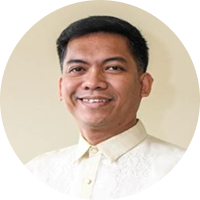 Dr. Claro Niegos Mingala is concurrently the Director of the Department of Agriculture – Biotechnology Program Office (DA-BPO) and OIC-Deputy Executive Director for Research and Development. He was a conferred Scientist IV by the Scientific Career System of the Civil Service Commission and the Department of Science and Technology. His office is responsible for biotechnology research, development and innovation, institutional capacity enhancement, information, education and communication, and policy development and advocacy, including partnership and fund generation, and technology commercialization and management. Dr. Mingala is also the current chair of the Technical Working Group for the crafting of the joint department circular guidelines for genetically modified animals. The DA-BPO also spearheads the policy and regulatory process for genetically modified commodities, creating Biotechnology Offices in the Bureau of Plant Industry, Bureau of Animal Industry, and the Bureau of Fisheries and Aquatic Resources. It also closely coordinates with the National Committee on Biosafety of the Philippines. The office complements the Agriculture Biosafety Committee of the Department of Agriculture on any related biotechnology concerns.
Dr. Claro Niegos Mingala is concurrently the Director of the Department of Agriculture – Biotechnology Program Office (DA-BPO) and OIC-Deputy Executive Director for Research and Development. He was a conferred Scientist IV by the Scientific Career System of the Civil Service Commission and the Department of Science and Technology. His office is responsible for biotechnology research, development and innovation, institutional capacity enhancement, information, education and communication, and policy development and advocacy, including partnership and fund generation, and technology commercialization and management. Dr. Mingala is also the current chair of the Technical Working Group for the crafting of the joint department circular guidelines for genetically modified animals. The DA-BPO also spearheads the policy and regulatory process for genetically modified commodities, creating Biotechnology Offices in the Bureau of Plant Industry, Bureau of Animal Industry, and the Bureau of Fisheries and Aquatic Resources. It also closely coordinates with the National Committee on Biosafety of the Philippines. The office complements the Agriculture Biosafety Committee of the Department of Agriculture on any related biotechnology concerns.
Dr. Mingala obtained a bachelor’s degree in animal husbandry before earning a master’s degree in veterinary studies at Central Luzon State University in the Philippines. He then finished his Ph.D. in veterinary science at Hokkaido University, Japan. He also completed two post-doctoral fellowships under the DA-Biotech Program in 2011 and the Fulbright-Philippine Agriculture Scholarship Program (FPASP) for Advanced Research Awards at Cornell University in 2016. To-date, he has authored and co-authored 2 books, 3 book chapters, 113 scientific articles, copyright registration, and intellectual property applications.
Fumani Mpikanisi
Biodiversity Officer-Production, Department of Forestry, Fisheries and the Environment, South Africa
 Ms. Fumani Mpikanisi is the Biodiversity Officer-Production at the Department of Forestry, Fisheries, and the Environment in South Africa. She provides technical and scientific support to the line function in charge of implementing Section 78 of the National Environmental Management Biodiversity Act (Act 10 of 2004). She is responsible for coordinating the Biosafety Research Program and developing national policies, legislation, regulations, and programs related to the environmental biosafety of GMOs, as well as coordinating the national implementation of biosafety related to international conventions and protocols.
Ms. Fumani Mpikanisi is the Biodiversity Officer-Production at the Department of Forestry, Fisheries, and the Environment in South Africa. She provides technical and scientific support to the line function in charge of implementing Section 78 of the National Environmental Management Biodiversity Act (Act 10 of 2004). She is responsible for coordinating the Biosafety Research Program and developing national policies, legislation, regulations, and programs related to the environmental biosafety of GMOs, as well as coordinating the national implementation of biosafety related to international conventions and protocols.
Dr. Sody M. Munsaka
Senior Lecturer and Chairperson, University of Zambia Biomedical Research Ethics Committee (UNZABREC)
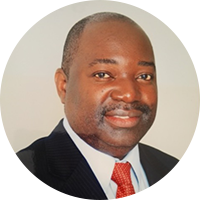 Dr. Sody M. Munsaka specializes in neuroimmunology and infectious diseases biomedical sciences. He currently is a Senior Lecturer and Chairperson of the University of Zambia Biomedical Research Ethics Committee (UNZABREC) and Dean of the School of Health Sciences at the University of Zambia. Dr. Munsaka teaches immunology, virology, molecular biology, research methodology, and biostatistics to biomedical science students, medical students, and postgraduate students. His research interest lies in the patho-immune mechanisms of HIV-associated neurocognitive disorders and interactions with drug abuse and other infectious diseases, including malaria and tuberculosis. His research focuses on identifying both the central nervous system and peripheral nervous system reservoirs of HIV, with the view to developing a functional cure for HIV. He is also involved in a research project to evaluate the correlates of immune dysfunction in HIV- and Human herpesvirus-8/Kaposi’s sarcoma virus-infected patients. Dr. Munsaka’s research interest also include the role that HIV commodities like hypertension play in the Zambian population. Recently, Dr. Munsaka has conducted studies in COVID-19 diagnostics and models of transmission of SARS-CoV-2.
Dr. Sody M. Munsaka specializes in neuroimmunology and infectious diseases biomedical sciences. He currently is a Senior Lecturer and Chairperson of the University of Zambia Biomedical Research Ethics Committee (UNZABREC) and Dean of the School of Health Sciences at the University of Zambia. Dr. Munsaka teaches immunology, virology, molecular biology, research methodology, and biostatistics to biomedical science students, medical students, and postgraduate students. His research interest lies in the patho-immune mechanisms of HIV-associated neurocognitive disorders and interactions with drug abuse and other infectious diseases, including malaria and tuberculosis. His research focuses on identifying both the central nervous system and peripheral nervous system reservoirs of HIV, with the view to developing a functional cure for HIV. He is also involved in a research project to evaluate the correlates of immune dysfunction in HIV- and Human herpesvirus-8/Kaposi’s sarcoma virus-infected patients. Dr. Munsaka’s research interest also include the role that HIV commodities like hypertension play in the Zambian population. Recently, Dr. Munsaka has conducted studies in COVID-19 diagnostics and models of transmission of SARS-CoV-2.
Dr. Munsaka graduated from the University of Zambia in 2003 (B.Sc. in Biological Sciences-Microbiology) and from the University of Hawaii (M.Sc. and Ph.D. in Biomedical Sciences-Tropical Medicine) in 2012. He recently completed an Advanced Postgraduate Diploma in Clinical Research (Research Ethics) from the Vienna School of Clinical Research. Dr. Munsaka joined the University of Zambia in 2013 after completing his post-doctoral fellowship in Neuroscience (Neuroimmune Pharmacology) from the University of Hawaii, John A. Burns School of Medicine, Department of Medicine Neuroscience and Magnetic Resonance Research Program. Dr. Munsaka is a member of the University of Zambia Senate, Chairperson of the University of Zambia Biomedical Research Ethics Committee, Chairperson of the Scientific Advisory Committee of the National Biosafety Authority, a member of the Higher Education Authority Board of Experts, and was a member of the W.H.O. Committee of Experts on the Ethics of the Issuance of COVID-19 Immunity Passports. Dr. Munsaka is also Treasurer of the Immunological Society of Zambia, and a member of the Chreso Ministries and the Consortium of Health Research Institutions in Zambia (COHREZ) Board of Directors. He is an accomplished scholar with over 80 scientific publications in internationally reputable medical journals and is a member of numerous journal editorial boards.
Nwadike Albert Nnabugo
Scientific Officer, National Biosafety Management Agency, Nigeria
 Nwadike Albert Nnabugo is a scientific officer with the National Biosafety Management Agency, Nigeria. His duties include handling general administrative processes for biosafety applications and decision-making, as well as developing relevant national biosafety guidelines. He has served on drafting committees for biosafety guidelines and sub-technical committees for risk assessment and review of biosafety applications. He holds a bachelor’s degree in industrial microbiology from Imo State University, Nigeria and is currently pursuing a master’s degree in food science and technology from Benue State University Makurdi. He is also working through a number of online certification courses in food and public health offered by universities in the U.S. and Europe. Albert enjoys singing, travelling and research.
Nwadike Albert Nnabugo is a scientific officer with the National Biosafety Management Agency, Nigeria. His duties include handling general administrative processes for biosafety applications and decision-making, as well as developing relevant national biosafety guidelines. He has served on drafting committees for biosafety guidelines and sub-technical committees for risk assessment and review of biosafety applications. He holds a bachelor’s degree in industrial microbiology from Imo State University, Nigeria and is currently pursuing a master’s degree in food science and technology from Benue State University Makurdi. He is also working through a number of online certification courses in food and public health offered by universities in the U.S. and Europe. Albert enjoys singing, travelling and research.
Eric Amaning Okoree
Chief Executive Officer, Ghana National Biosafety Authority
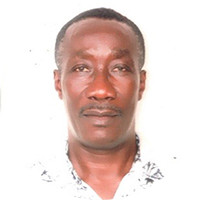 Eric Amaning Okoree is the Chief Executive Officer of the Ghana National Biosafety Authority. He has a background in environmental science, with biosafety as his specialization. He started his career as Assistant Director at the Ministry of Environment, Science and Technology in 1999. As the schedule officer for biodiversity and biosafety, he contributed to the drafting of Ghana’s Biosafety Bill and also facilitated its passage into law in 2011. He became the Chief Executive Officer of the National Biosafety Authority in 2015 and has since been ensuring the effective running of the sector. He has served as a resource person in several biosafety training programs in Ghana and Africa. He has been part of Africa’s group of negotiators in most of the Conference of Parties of the CBD and currently represents Africa on the Bureau of the CBD Conference of Parties.
Eric Amaning Okoree is the Chief Executive Officer of the Ghana National Biosafety Authority. He has a background in environmental science, with biosafety as his specialization. He started his career as Assistant Director at the Ministry of Environment, Science and Technology in 1999. As the schedule officer for biodiversity and biosafety, he contributed to the drafting of Ghana’s Biosafety Bill and also facilitated its passage into law in 2011. He became the Chief Executive Officer of the National Biosafety Authority in 2015 and has since been ensuring the effective running of the sector. He has served as a resource person in several biosafety training programs in Ghana and Africa. He has been part of Africa’s group of negotiators in most of the Conference of Parties of the CBD and currently represents Africa on the Bureau of the CBD Conference of Parties.
Annah Runesu Takombwa
Inspectorate Manager, National Biotechnology Authority, Zimbabwe
 Annah Runesu Takombwa is the Inspectorate Manager for the National Biotechnology Authority (NBA) in Zimbabwe. She holds a B.Sc. (with Honours) in Agriculture (Crop Science) from the University of Zimbabwe and an M.Sc. in Managing the Environment (Risk Assessment of GM Crops) from Aberystwyth University in Wales, United Kingdom. She is responsible for ensuring the safety and security of research, development, application, and use of biotechnology in Zimbabwe and advising the NBA on biosafety issues. In addition, she has considerable experience in negotiating on behalf of Zimbabwe and Africa at large during Convention on Biological Diversity meetings.
Annah Runesu Takombwa is the Inspectorate Manager for the National Biotechnology Authority (NBA) in Zimbabwe. She holds a B.Sc. (with Honours) in Agriculture (Crop Science) from the University of Zimbabwe and an M.Sc. in Managing the Environment (Risk Assessment of GM Crops) from Aberystwyth University in Wales, United Kingdom. She is responsible for ensuring the safety and security of research, development, application, and use of biotechnology in Zimbabwe and advising the NBA on biosafety issues. In addition, she has considerable experience in negotiating on behalf of Zimbabwe and Africa at large during Convention on Biological Diversity meetings.
